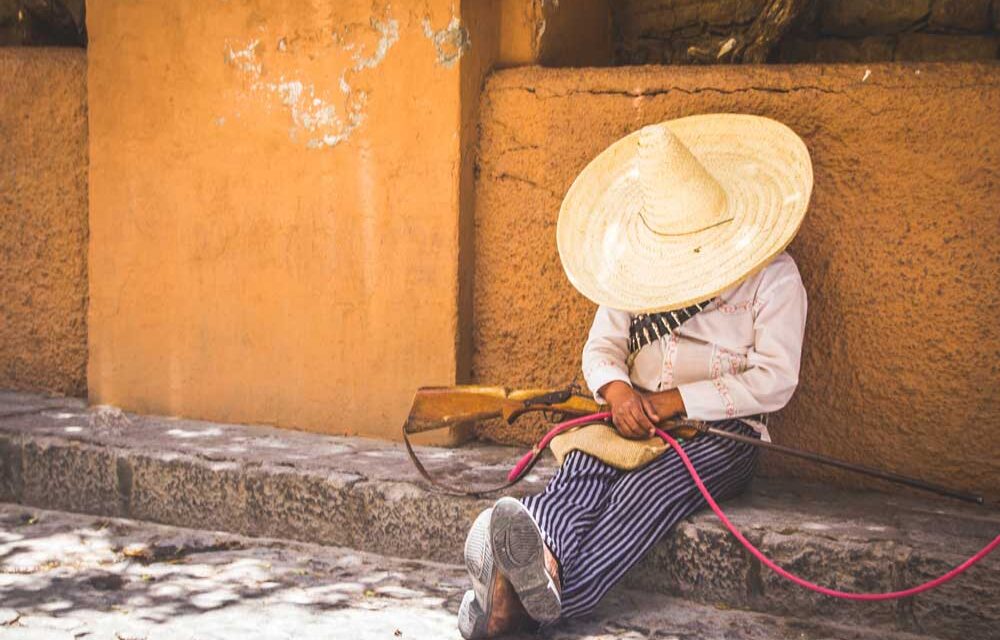Machismo -. an exaggerated sense of manliness. Today, many Latino households are redefining what it means to be a man. Men are encouraged to be sensitive, empathetic, and emotionally expressive. They are learning to share responsibilities within their families and relationships, fostering healthier dynamics and more meaningful connections. In a Latino household in the past, there was no other way that was acceptable. Machismoism seems to be a thing of the past. Do you think that is a good thing it’s in the past or do you think we could all use a little more of it in our lives? Let’s talk about it…
Orlando Barrios: “ Machismo is, of course, a cultural phenomenon: the local flavor of Patriarchy. And I would say that yes, it’s easier to find among poorer people, at least in my experience. However, I would say that poverty is not the cause of Machismo, but one of the factors that perpetuate it, the same way it perpetuates large families, or alcoholism, or any other social disease. Better standards of living and access to better education will surely help us to get rid of this worthless heritage.”
Alejandra Muñoz Cravioto: “While I haven’t encountered anyone saying that ever, I think that the reason why one would believe that is because, overall, women in the USA complain more.That is, they don’t see “machismo” as part of their day to day life, so when they encounter a chauvinistic attitude or sexism, they’re going to notice it. By contrast, women in Latin America (though by no means all of them) are used to certain actions and attitudes that would be considered sexist in the USA, so they don’t really sweat those attitudes and don’t bring them up as a form of discrimination.Thus, giving the appearance that there’s more sexism/machismo in the USA.”
Tony DeAnda: “I think everyone is different. Every relationship is different. Some women like a man like that and some don’t. I am definitely not Machismo but I do think some women like a man like that.”
Paul Budak: “Nice guys still finish last. However a man that is confident and kind but assertive wins out. Jerks win to a point but lose in the end.”
Jazmin D Zuñiga: “Past???? It’s still here!”
Stacie Jo Reyes: “Ok. I still want a man that kills bugs, fixes cars, can run a fence line, build stuff, and takes out the trash. I don’t want a man that tells me I can or can’t do something, you can’t eat that, you can’t say/act a certain way.”
Michael Momo Chazz Martinez: “Non-Toxic Machismo…absolutely.”
Ian Ybanez: “The system wants us to be weak.”
Johnny Graterol Guevara: “The root cause is the deeply homophobic and conservative nature of Latin American culture. I can’t speak for other countries in the region, but in the case of Venezuela, at least, the upbringing of a child is very much determined by the expectations and phrases such as:
¿Y como están las novias? (“How are the girlfriends?” like in plural. A boy is always expected to have not one, but several girlfriends, as to demonstrate his manliness and prowess)
¿Y cuando te casas? (“So, when are you going to get married?” If you remain single for a significant amount of time, people begin to question your sanity)
¿Será que es marico? (“Perhaps he is a queer?” Said of every Venezuelan male that remains single after thirty)
As to whether this is influenced somehow by economic factors, in my experience I can tell it doesn’t matter: Both wealthy and not wealthy strata of Latin Americans (Venezuelans) seem to share the same amount of machista, misogynist and homophobic attitudes.”
Sarah Grandstaff: “I found your question because I was searching for answers about my father-in-law. He’s not poor, in fact the family is wealthy and has been for generations. He’s very well educated with a masters’ degree from an ivy league school. We (my family) don’t live in Mexico but he still tries to control every decision we make and all of our vacation time. We’re financially independent but my husband still feels a strong pull to obey his parents (really, his father), because of his “training”. While my father in law is not physically abusive, he is most definitely emotionally abusive and must be obeyed. It’s actually funny to watch his adult children agree with every word he says when
we’re together. Sometimes one of the spouses forgets the dynamic temporarily and treats the dinner discussion as an actual debate. This person is verbally eviscerated in front of the entire group and forced to apologize for confronting their father in law with facts. It would be funny if it hadn’t done so much damage to my husband’s sense of self. And I’m an absolute nervous wreck when we have to be around him because he has disdain for both women and Americans in general, so I’m usually a target. This is anecdotal and it’s entirely possible that he’s just a random malignant narcissist, but I think Mexico’s patriarchal society had a hand in creating the monster.”
Joseph Panzarella: “ Machismo is, historically, a vicious circle. A mother with young children showers affection on her sons. Not as much on her daughters because they will one day marry away from the family. Therefore, they are less important to her future. The life of a young Mexican wife is dominated by two people: her husband and her mother-in-law. They essentially band together for the purpose of making her life miserable. She dares not complain to her husband about her mother-in-law’s interference. He will respond “No te metas con mi mamà!” “Leave my mother alone!” The husband does what he wants. Has as many women as he wants. Drinks whatever he wants. Ignores the family for extended periods of time. And resorts to physical violence if his wife has the nerve to protest. She also makes sure that her young sons witness her misery and take her side. After all, these boys are her future. One day she will be that domineering mother-in-law. And so it happens. The sons grow up. They marry. They treat their wives as miserably as they witnessed their father treat their mother. And their mother becomes that all-powerful mother-in-law, never to be contradicted. And the old father? ¨Get lost old man! You’re not wanted around the house. Go to the cantina, hang out with your cronies and drink all you want.” And he does. Down through the generations. But, there’s good news. This way of life still exists but primarily in rural areas. In the cities, where most people live, machismo as a way of life is considered outdated. The trend is irreversible, especially among the young and the growing Middle Class. But for poor, small-town folks, it’s going to hang on for a while yet.”








